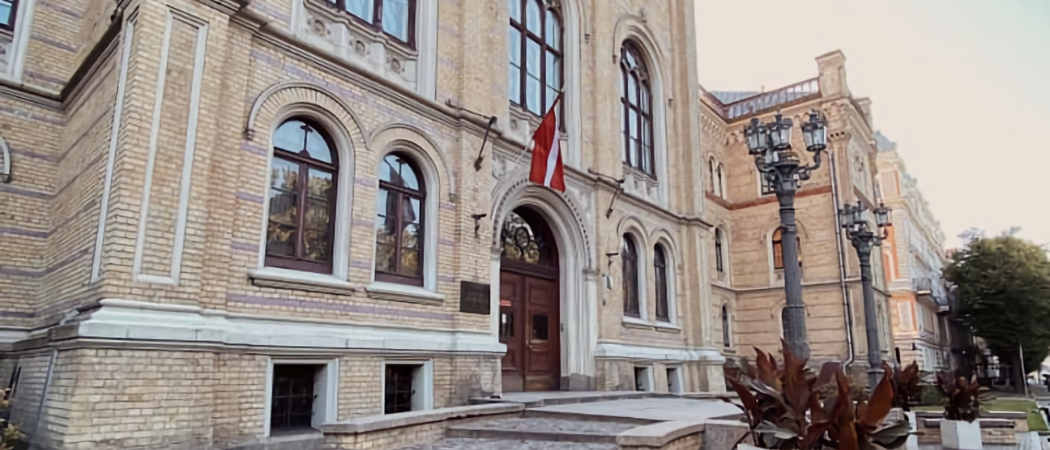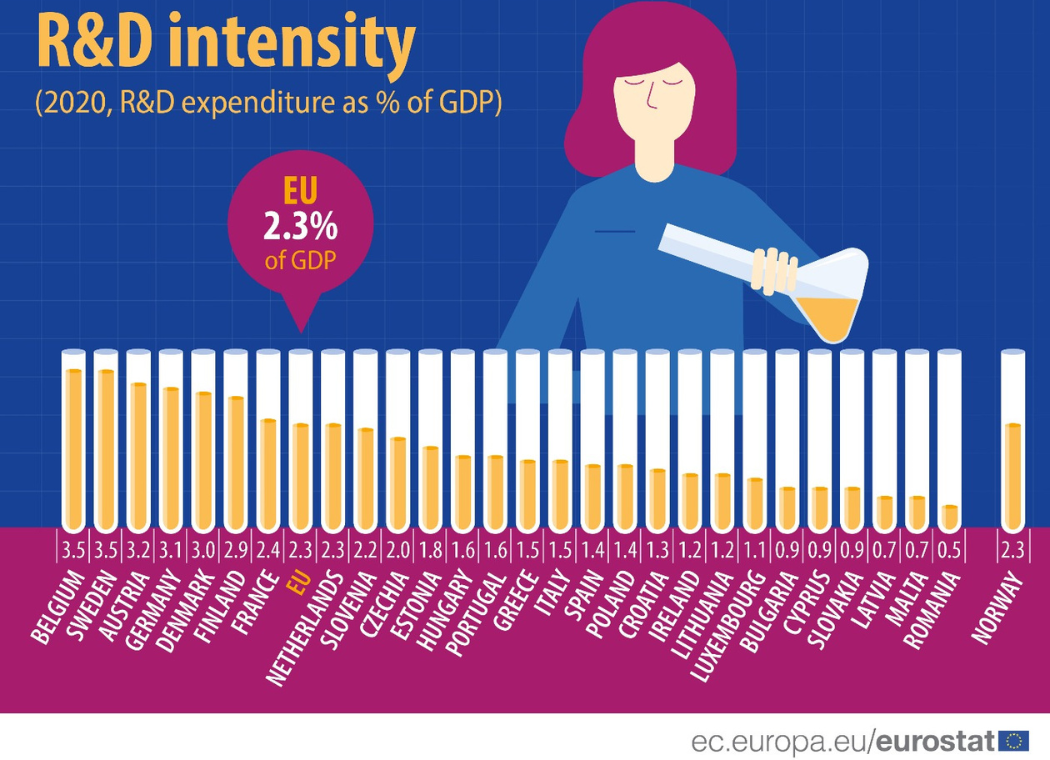The country’s low number of PhDs and unattractive academic career pathways has left it struggling to replace retiring academics and is holding back its research performance

The University of Latvia in Riga. Photo: Latvijas Universitāte / Facebook
Latvia is set to improve terms and conditions for PhD students and academics, two areas the government has flagged as major weaknesses in its research performance.
In new legislation to come in this autumn, PhD students will be given state salaries of at least €1,000 per month, replacing the former scholarship-based model. This will be in addition to an obligation for universities to provide a more or less equal amount from active involvement in research projects.
Another change will be linking PhD students to specific research projects, meaning they are all involved in R&D from day one of their studies.
Jānis Paiders, appointed this August as director at the department for higher education, research and innovation at the Ministry of Education and Science, hopes this will end what has been a long running weakness.
“Our doctoral study programmes were stagnating and their allocated study places were mostly tradition based, and were not directly tied to research outcomes,” he said. “The number of graduates severely decreased to a low of 100 per year. The latest data shows that we are among the worst countries in Europe in the number of new doctoral graduates compared to our population.”
The recently released European Innovation Scoreboard rates Latvia’s doctorate graduate score as being just 25.8% of the EU average, and lists the low number of graduates as one of the main shortcomings.
Paiders is hoping the changes, which will come into effect from 2024, will increase the number of postdocs to between 250 - 300 per year, giving the country a chance of replacing the cohort of academics who retire each year.
The budget for the new state salaries will initially come from European regional funds and the post-Covid Recovery and Resilience Facility but Paiders acknowledged that at some point the higher education budget will have to increase to cover this expenditure.
The €1,000 PhD salary was decided pre-Covid and could be increased, Paiders said.
Tenure
A 2018 European Commission report on Latvia’s research funding system highlighted the troubles academics face in carving out careers in the country.
“New generations have had difficulties entering the system because of the lack of new positions and the low attractiveness of academic careers in Latvia compared with opportunities in other countries,” the report said.
Plans to solve this issue have been in the pipeline for a while but were delayed by the COVID-19 pandemic.
The government’s four-point plan notably involves the introduction of tenure positions for academics. Latvia has been a rare exception in Europe in not having these before, usually offering fixed-term six-year contracts to professors.
In addition, the government wants to increase the salaries of professors and create a better balance between teaching and research duties.
Paiders noted these changes are in step with a broader movement in Europe to reform research careers. In July this year the European Commission announced a non-binding, three-pronged approach to improving academic careers that includes more effective monitoring of research careers through an observatory; an updated charter for researchers; and a competence framework of seven areas researchers are expected to develop skills in.
“When we look at the European Commission’s new measures that are aimed at improving career paths for researchers’ working conditions, and especially when it comes to young researchers, that absolutely is related to the situation that we're facing,” Paiders said.
Latvia’s R&D intensity - the amount spent on R&D as a percentage of GDP – is one of the lowest in the EU at just 0.74%. The EU average is 2.3%. This feeds into the lack of investment into higher education, research institutes and universities.
The government’s mid-term goal is to increase R&D intensity to at least 1.5%, including raising the public portion of that from 0.25% to 0.5%.
“These goals are ambitious if we look at where we are now, but of course, if we compare ourselves with the average level of European countries, then it's still way below that,” said Paiders.
Another area in need of improvement is the reporting of R&D data, something that is often lacking in the private sector as many companies see it as an extra administrative burden. This needs to change, Paiders said, and it will give a more accurate representation of where Latvia is at in a European context.

Things are changing. This year, the government has pumped an extra €20 million into the R&D budget, the biggest increase since 2007.
Paiders is optimistic that Latvia is on the right path to improving its research performance.
“Right now we see these positive trends, especially regarding overall productivity of our researchers” he said. “But of course, we are a long way from our growth goals and there's a lot of work to do.”





 A unique international forum for public research organisations and companies to connect their external engagement with strategic interests around their R&D system.
A unique international forum for public research organisations and companies to connect their external engagement with strategic interests around their R&D system.